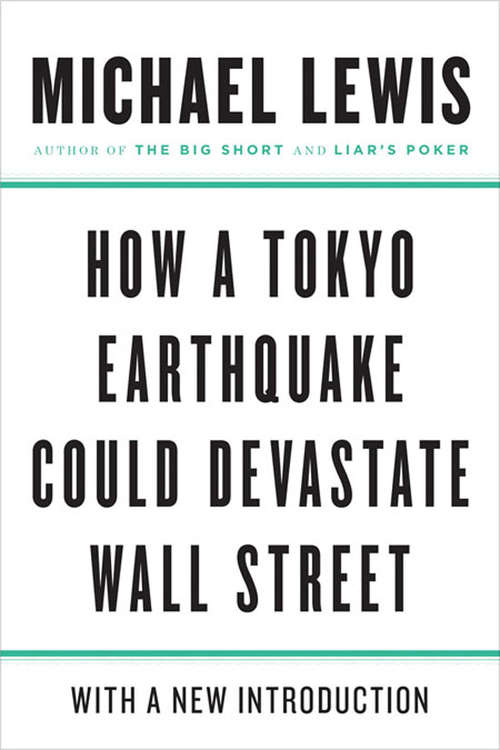How a Tokyo Earthquake Could Devastate Wall Street
By:
Sign Up Now!
Already a Member? Log In
You must be logged into Bookshare to access this title.
Learn about membership options,
or view our freely available titles.
- Synopsis
- In 1989, Michael Lewis reported on the potential effects of an earthquake in Japan on world financial markets. His insights are once again timely, and they are presented here as a stand-alone essay with a new introduction: "Real Versus Imaginary Japanese Earthquakes." In the late 1980s, Japanese scientists were trying to figure out the economic damage that would be caused if a catastrophic earthquake destroyed Tokyo. The answer was bleak, but not for Japan. Kaoru Oda, an economist who worked for Tokai Bank, speculated that the United States would end up paying the most. Why? Japan owned trillions of dollars' worth of foreign liquid assets and investments. These assets, which the world depended on, would be sold, forcing countries into the precarious position of having to return large amounts of money they might not have. After the recent earthquake, Michael Lewis reexamined this hypothesis and came to a surprising conclusion. With his characteristic sense of humor and wit, Lewis, once again, explains the inner workings of a financial catastrophe. "How a Tokyo Earthquake Could Devastate Wall Street" appears in Michael Lewis's book The Money Culture.
- Copyright:
- 2011
Book Details
- Book Quality:
- Publisher Quality
- ISBN-13:
- 9780393341508
- Publisher:
- W. W. Norton & Company
- Date of Addition:
- 04/14/17
- Copyrighted By:
- Michael Lewis
- Adult content:
- No
- Language:
- English
- Has Image Descriptions:
- No
- Categories:
- Nonfiction, Business and Finance, Mathematics and Statistics
- Submitted By:
- Bookshare Staff
- Usage Restrictions:
- This is a copyrighted book.
